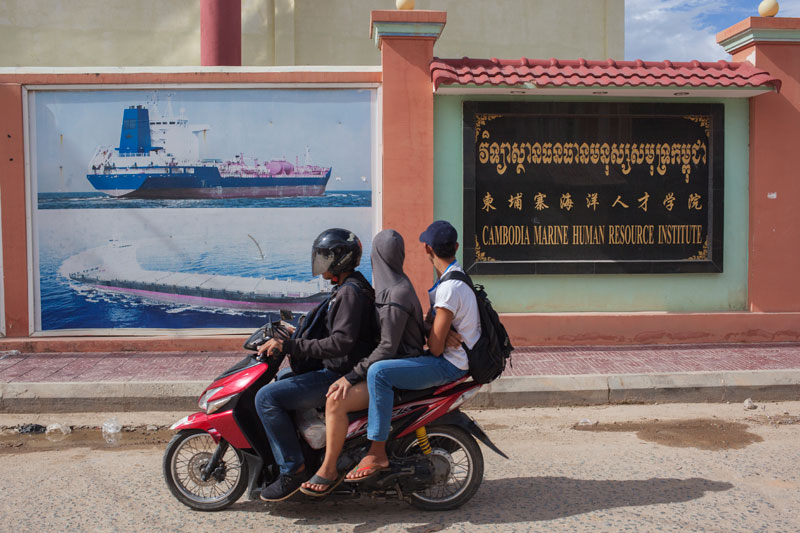Two days after four men were repatriated to Cambodia following their escape from a cargo ship docked in the Philippines, an official at the maritime school where the group studied questioned the veracity of the reports of mistreatment.
Ryan Yang, crewing department manager at the Cambodia Marine Human Resource Institute (CMHRI) in Phnom Penh, said Tuesday that in line with the International Maritime Organization’s Convention on Standards of Training, Certification and Watchkeeping, the men had been apprenticing as “ordinary seamen” aboard the Blue Emperor 1.

In this role, Mr. Yang claimed, they were expected to do unskilled tasks—like cleaning bathrooms, which one of the repatriated men complained about—with no salary and only a food provision granted until they were promoted to “able-bodied seaman.”
“They say cleaning toilet, maybe. Of course, they don’t have a maid aboard to take care of all of you,” Mr. Yang said, adding that students were told in advance about the conditions they would endure.
He suggested that the problem lay with the men’s “personality, mentality and attitude.”
The Ministry of Foreign Affairs said the four men—In On, 21; Eng Socheat, 35; Sorm Chamroeun, 28; and Mith Tola, 28-—fled the cargo ship following abuse including being forced to work while sick and having their salaries withheld.
Mr. Yang said that while his school had arranged work contracts between the four men and the ship’s Chinese owner, New Unite HK Marine Shipping, responsibility for addressing problems on board fell on the crewmembers themselves, and called the escape “unacceptable.”
“I’m not going to say this is true or not true…but if they have any problems they should go accordingly in the right way to complain and talk to the ship owner,” he said.
Mr. Socheat, one of the crewmen who had been on the Blue Emperor since June but had worked similar jobs on other vessels for more than a year after leaving CMHRI, disputed Mr. Yang’s assertion that the four had simply needed an adjustment to their “mentality.” He said a promotion had been consistently blocked by his superiors, who offered a variety of reasons, including language issues.
“I am able to do my job every day but they turn to say that when I pick up the phone I cannot speak Chinese,” Mr. Socheat said, adding that while the maritime institute had promised training on board the vessel, he did not receive any.
“They said we would go to learn and get knowledge, but when we arrived it was not like that. They did not teach us,” he said.
Thun Sophorn, national coordinator for the International Labor Organization, said it was easy for migrant workers, including those at sea, to be taken advantage of if precautions were not taken.
“Migration for work, for employment is generally risky unless you are well informed, have enough information,” he said.



